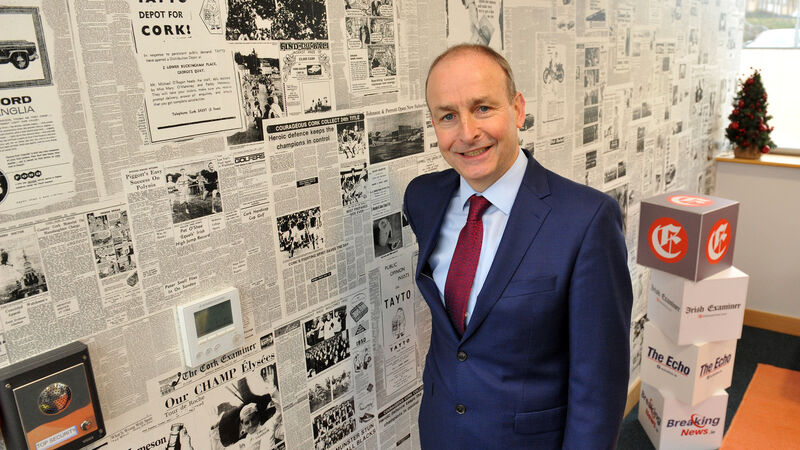'I’m not playing against the wind yet': Micheál Martin on Christmas in Cork and reasons for hope

Taoiseach Micheál Martin at the offices of The Irish Examiner, Linn Dubh, Blackpool, Cork pictured beside a wall of 'old newspapers' at the reception. Picture: Larry Cummins.
It’s often been said that a week is a long time in politics. Now the political advisors are saying a week is a long time in Covid.
Since his election as Taoiseach in June 2020, Micheál Martin has been trying to chart a course for Ireland through one of the greatest public health crises in a century.











